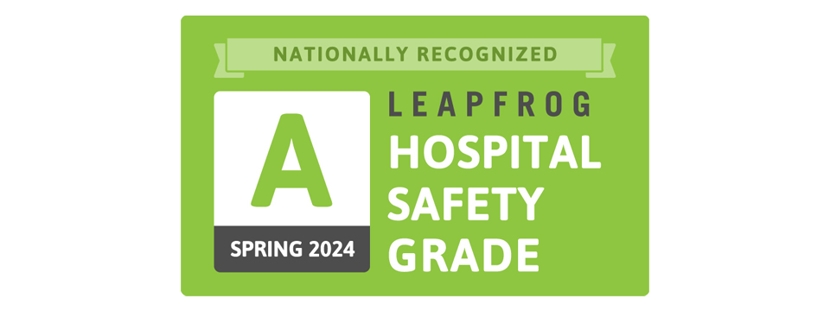Carteret Health Care Sleep Center Receives Accreditation
- Category: News, Press Releases & Media Coverage
- Posted On:
- Written By: Carteret Health Care
While there are tangible signs of ongoing construction outside of Carteret Health Care, there are less visible advancements being made in many of the hospital’s various departments.
Recently, the hospital’s sleep lab received its highly-sought accreditation from the American Academy of Sleep Medicine (AASM), a voluntary process that endorses the quality of care patients can expect at Carteret Health Care’s facility. The Academy began offering the accreditation program in 1977. Today, there are more than 2,500 accredited sleep centers across the country.
That’s great news for area residents, as the accreditation comes on the heels of the results of a new Academy study which cites that outcomes are better when patients receive care from sleep specialists and accredited sleep centers.
“We are very excited about the accreditation,” said Dr. Sajeev Vettichira, who leads the CGH center. “It shows that our center meets all of the standards from the American Academy of Sleep Medicine – the national standard for facilities like ours – and ensures that patients are receiving the best care possible.”
The organization is highly regarded in the medical industry, Dr. Vettichira said. To earn the five-year accreditation, the center must meet a variety of professional standards outlined by the AASM and undergo a certified site visit to evaluate the facility and equipment, personnel, patient care, record keeping, safety, policies and other areas.
The center, which opened in 2002 with two beds, recently expanded to four patient rooms on the fourth floor of the hospital to help handle the patient load. Gone are the sterile hospital beds and tile floors. Instead, sleep center patients will find wood floors, comfortable beds with colorful quilts, art on the walls, granite counters in the adjoining bath and a flat screen television to help ease the transition.
“Each room is meticulously decorated to add a touch of home for the patient,” said Sharon Harker, Sleep Center Supervisor. “The environment of the Sleep Center is designed to make the patient feel welcomed and comfortable. Our goal is to make people feel like they are in a home-like setting and not at a hospital or undergoing medical tests.”
As awareness continues to increase, the center expects more patients will request sleep studies. The most vulnerable time in our life is when we sleep. Many people that may have a sleeping disorder can be totally unaware of what goes on while they are sleeping. But the sleeper may wake up tired, un-refreshed and excessive sleepiness during the day. These symptoms can be the first clue that the quality of your sleep may need to be looked more closely stated Harker.
Experts reported that an estimated 95 percent of sleep disorder sufferers go untreated. The National Commission on Sleep Disorders Research estimates that approximately 40 million Americans suffer from chronic sleep disorders and another 20-30 million suffer on a part-time basis. The center fills a niche in the medical community.
The risk factors of untreated sleep disorders can also be staggering. Harker notes that snoring, memory loss, depression, sexual issues, high blood pressure, even cardiac episodes can be directly related to sleep disorders.
“Treatment can be life changing, not just affecting the quality of the life of the patient, but for the family as well,” Harker said. “Sleep apnea, for example, can cause cardiac arrest, stroke, high blood pressure, obesity – there’s a snowball effect that occurs. But once it has been identified and treated, many patients see signs of improvement in many areas, not just in their ability to get a good night’s sleep.”
Common signs of a sleep disorder include:
- Frequent or loud snoring
- Excessive daytime tiredness
- Memory or learning problems
- Irritability
- Depression
- Morning headaches
- Difficulty staying asleep
- Trouble concentrating
While sleep apnea is definitely the most discussed sleep disorder, it certainly is not the only problem people encounter after tucking into bed for the night. Locally, Harker said the sleep center sees patients with restless leg syndrome, insomnia, narcolepsy and other conditions. Snoring and excessive daytime sleepiness top the list of chief complaints.
“Sleep disorders are under diagnosed and we need to provide more education to patients in our area so they seek help,” said Dr. Vettichira. “Most physicians are aware and can recognize and refer but I think the patient has to be proactive in that process. They have to tell the physician about the problems in order for them to be addressed. As a physician, during a short office visit, it’s impossible to ask a patient about all areas of their health. So patients must be willing to speak up about their complaints.”
When they do, of course, Dr. Vettichira and the staff at Carteret Health Care’s sleep center will be more than happy to welcome them for evaluation.
“We’ve built a fine program here and I think the staff is very proud of what we’ve been able to accomplish,” said Harker. “It’s an exciting time for the hospital and we’re happy to be changing and growing right along with it.”
The AASM is a professional medical society for clinicians, researchers, and other healthcare providers in the field of sleep medicine. As the national accrediting body for sleep disorder centers, the AASM is dedicated to setting standards and promoting excellence in sleep medicine healthcare, education and research.

